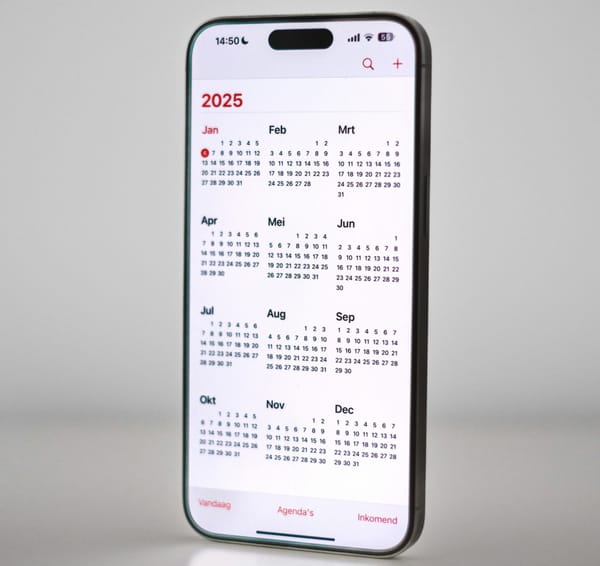The Parent Trap: Late Season Back-to-School and College Scams Still Active

The school year may be underway, but for scammers targeting desperate parents and stressed students, class is always in session. As September rolls into October, fraudsters are ramping up sophisticated schemes that exploit the financial pressures of education—from fake scholarship promises to AI-generated university websites that look more real than reality itself.

With college costs averaging $38,000 per year and textbooks alone running $1,200-$1,400 annually, families are prime targets for criminals who weaponize hope against them. The Federal Trade Commission received 2.6 million fraud reports in 2023, with education scams causing particular devastation: students losing their life savings to fake universities, parents emptying retirement accounts for non-existent scholarships, and graduates drowning deeper in debt from phony loan forgiveness schemes.
The cruel irony? The very desperation that drives people to seek financial relief makes them perfect victims for those promising it.
The New School of Fraud: AI Changes Everything
The Rise of the Fake Universities
In August 2025, investigators uncovered a network of 40 fake college websites, all enhanced with artificial intelligence. "Southeastern Michigan University" looked so legitimate that even education lawyers were initially fooled. The site featured:
- AI-generated graduation videos with smiling students
- Sophisticated chatbots answering admissions questions
- Fake accreditation from bogus agencies (all created on May 10, 2024)
- "Vibrant campus life" photos that never existed
- 75% graduation rates for students who were never real
The Michigan Attorney General's Warning: These sites aren't just stealing application fees—they're harvesting enough personal data for complete identity theft, including Social Security numbers, financial records, and family information.
The Scale of Deception:
- 79 private colleges deregistered between mid-2023 and December 2024
- 21,000+ qualifications canceled
- 18,750 students left with worthless diplomas
- Millions siphoned from families worldwide
How They Hook You:
- Social media ads promoting "accelerated degrees"
- LinkedIn profiles for fake professors and alumni
- Instagram pages showing campus events that never happened
- Promises of guaranteed job placement or visa sponsorship
- "Limited time" enrollment discounts requiring immediate payment
The Scholarship Scam Epidemic
The Numbers That Should Terrify Every Parent
- 175,000+ victims of scholarship fraud annually in the U.S.
- $5-$35 typical "application fees" collected from thousands
- $1,000 average loss per victim (often much higher)
- 5,000-10,000 applications received by typical scam operations
The "You've Already Won" Scheme
Late September brings a surge in fake scholarship notifications—perfectly timed when families realize they can't afford October's tuition bill.
The Classic Con:
- Email arrives: "Congratulations! You're a finalist for the National Academic Excellence Scholarship"
- The catch: Pay a $250 "processing fee" to claim your $10,000 award
- The twist: You never entered this contest
- The result: No scholarship exists, your money vanishes
Real Victim Account: Sarah M. from Ohio received notification she'd won a $15,000 scholarship for her daughter. "They knew her school, her major, even her GPA. They said we had 48 hours to claim it or it would go to another student." She paid $750 in "administrative fees." The scholarship never existed.
The Sophisticated Variants
"The Exclusive Database"
- Claims access to "hidden" scholarships
- Charges $299 for "proprietary search technology"
- Reality: All legitimate scholarships are publicly listed
- Result: Generic list you could find free online
"The Guaranteed Award Service"
- Promises scholarship or money back
- Charges $500-$2,000 upfront
- Refund conditions impossible to meet
- Often disappears entirely after payment
"The Seminar Trap"
- Free financial aid seminars at hotels
- High-pressure sales for paid services
- Claims of "special relationships" with aid offices
- Parents pressured to sign up immediately or "lose opportunities"
International Student Targeting
Scammers specifically exploit international students with:
- Fake "visa scholarship" programs
- Promises of guaranteed permanent residency
- "Fast-track diplomas" for immigration purposes
- Fraudulent pathway programs to legitimate universities
Case Study: A network targeting South Asian students collected over $11 million in 2024, promising guaranteed admission to U.S. universities with full scholarships. Students arrived to find neither the scholarships nor the admissions existed.
The Textbook Racket: Where Education Meets Extortion
The Counterfeit Textbook Explosion
With textbooks averaging $200+ each, the fake textbook market has exploded. But these aren't just photocopies anymore—they're sophisticated operations that:
The "Never Arriving" Classic:
- Website offers textbooks at 60% discount
- Professional-looking site with secure checkout
- Takes payment, provides tracking number
- Tracking shows "delivered" but nothing arrives
- Site disappears, payment unrecoverable
The "Access Code Trap"
- Sells textbook without required digital access code
- Code alone costs same as new textbook
- Student forced to buy twice
- Seller claims "as described" in fine print
The Quality Disaster:
- Books arrive but are:
- Missing crucial pages
- Printed on tissue-thin paper
- Wrong edition disguised with new cover
- In foreign language despite English listing
- Counterfeit with scrambled content
The Professor's Predicament:
Many professors now require their own textbooks with unique access codes, creating a $1,000+ captive market per class. When students seek alternatives, scammers pounce.
The Digital Deception
Fake E-Book Platforms:
- Promise unlimited textbook access for $8.99/month
- Steal credit card information
- Install malware through "reader" downloads
- Textbooks disappear mid-semester
- Auto-renew at inflated prices
Real Student Impact: "I thought I was saving $400 on my chemistry textbook. The PDF worked for two weeks, then vanished during midterms. The site was gone. I had to buy the real book at markup and failed my exam." - Marcus T., sophomore
Student Loan Forgiveness Fraud: The Cruelest Con
The Billion-Dollar Betrayal
With 43 million Americans owing $1.7 trillion in student loans, forgiveness scams have become industrial-scale operations.
2025 FTC Actions:
- $743,230 returned to victims from single scam operation
- $20.3 million stolen through fake Department of Education affiliates
- Operators permanently banned from debt relief industry
- Thousands still operating undetected
The Playbook of Pain
"The Government Caller"
- Claims to be from Federal Student Aid
- Knows your loan balance and servicer
- Says you qualify for "new" forgiveness program
- Requires immediate action or you'll "lose eligibility"
- Charges "processing fee" for free government program
"The Consolidation Con"
- Promises to reduce payments through special program
- Actually consolidates federal loans into private loans
- Victim loses ALL federal protections and forgiveness eligibility
- Monthly payments often increase
- No recourse once consolidation complete
"The Power of Attorney Nightmare"
- Requests FSA ID password "to help"
- Takes control of your loan account
- Changes payment plans without consent
- Steals personal information for identity theft
- Locks you out of your own account
Victim Testimony: "They said they were from a federal loan forgiveness program. They knew everything about my loans. I gave them my FSA ID to 'verify eligibility.' They changed my payment plan, stole my tax refund through false documentation, and I'm now in default." - Jennifer K., teacher
The Fake Forgiveness Documentation
Scammers now provide:
- Official-looking approval letters
- Fake government websites with .org domains
- Counterfeit Department of Education communications
- "Confirmation numbers" for non-existent programs
- Forged signatures from federal officials
The Late-Season Surge: Why September-October is Prime Time
The Desperation Timeline
Late September:
- First tuition bills overdue
- Financial aid falls short
- Textbook costs hit
- Parents panic about payments
Early October:
- Scholarship deadlines approaching
- Loan payments resuming
- Holiday expenses looming
- Maximum financial stress
The Scammer's Calendar:
- They know when bills are due
- They track scholarship deadlines
- They monitor news about loan forgiveness
- They strike when you're most vulnerable
The Test Prep Trap
As October SAT/ACT dates approach, fake test prep scams surge:
"The Score Guarantee"
- Promises specific score increases
- Charges $2,000-$5,000 upfront
- Provides generic practice materials
- No refund when scores don't improve
- Often disappears before test date
"The Insider Secret"
- Claims to have "actual test questions"
- Sells fake materials for hundreds
- Student risks score cancellation if caught
- No recourse when materials prove fake
"The Perfect Essay Service"
- Guarantees admission to top schools
- Charges thousands for application help
- Submits plagiarized or AI-generated essays
- Student faces rejection or expulsion
- Service vanishes after payment
Red Flags: Your Education in Scam Detection
Universal Warning Signs
The Payment Red Flags:
- ANY scholarship requiring payment
- Fees for "guaranteed" financial aid
- Requests for gift cards or wire transfers
- Pressure for immediate payment
- Claims that "everyone pays this fee"
The Information Red Flags:
- Requests for FSA ID passwords
- Demands for Social Security numbers via email
- Banking information for "deposit verification"
- Power of attorney documents
- Tax return requirements for scholarships
The Pressure Red Flags:
- "Limited time" offers
- "Act now or lose opportunity"
- "Special selection just for you"
- "Don't tell anyone about this offer"
- "Pay now, paperwork later"
The Too-Good Red Flags:
- Guaranteed scholarships
- No GPA requirements
- No application needed
- 100% loan forgiveness promises
- Secret or exclusive programs
Your Defense Strategy: The Anti-Scam Curriculum
For Parents:
1. The Verification Protocol
- Research EVERY scholarship at StudentAid.gov
- Check Better Business Bureau for companies
- Verify schools at Department of Education database
- Call financial aid offices directly
- Never trust unsolicited offers
2. The Payment Rules
- NEVER pay for scholarship applications
- NEVER pay for FAFSA assistance
- NEVER pay upfront for loan help
- ALWAYS use credit cards (not debit) online
- ALWAYS get contracts in writing
3. The Information Fortress
- Create separate email for college searches
- Never share FSA ID passwords
- Monitor credit reports monthly
- Use two-factor authentication
- Document everything
For Students:
1. The Scholarship Search Strategy
- Use only verified databases (College Board, Fastweb)
- Apply through school financial aid office
- Check with guidance counselors
- Research every organization
- Trust no "exclusive" offers
2. The Textbook Tactics
- Buy from campus bookstore first week
- Use professor's reserve copy
- Check library resources
- Join student textbook exchanges
- Verify sellers thoroughly
3. The Loan Management Method
- Only work with official servicers
- Use StudentAid.gov exclusively
- Never pay for federal program help
- Keep all documentation
- Report suspicious contacts
When Scams Strike: Your Recovery Roadmap
Immediate Actions:
- Stop all payments immediately
- Contact your bank/credit card company
- Change all passwords (especially FSA ID)
- Document everything (save emails, texts, contracts)
- File reports with authorities
Where to Report:
- FTC: ReportFraud.ftc.gov
- Federal Student Aid: StudentAid.gov/feedback
- State Attorney General: State consumer protection office
- Better Business Bureau: BBB.org/scamtracker
- IC3 (Internet Crime): IC3.gov
- Your school: Financial aid office
Recovery Resources:
- Identity Theft: IdentityTheft.gov
- Credit Freeze: All three credit bureaus
- Legal Help: National Consumer Law Center
- Emotional Support: Campus counseling services
The Hidden Victims: When Schools Themselves Are Targets
The Institutional Impact
Fake universities don't just hurt students—they damage legitimate institutions through:
- Brand confusion and reputation damage
- Resources spent fighting impersonation
- Lost enrollment from confusion
- Legal costs for trademark protection
- Student services overwhelmed by scam victims
Case Study: Eastern Michigan University spent thousands investigating "Southeastern Michigan University" scam site, fielding calls from confused students, and pursuing legal action.
The Long-Term Damage: Beyond Lost Money
The Ripple Effects
Academic Impact:
- Delayed graduation from financial crisis
- Dropped courses due to textbook scams
- Lost semesters from fake universities
- Damaged graduate school applications
Financial Devastation:
- Ruined credit from identity theft
- Lost federal aid eligibility
- Defaulted loans from scam interference
- Bankruptcy from accumulated fraud losses
Emotional Toll:
- Destroyed trust in legitimate programs
- Anxiety about all financial decisions
- Depression from shattered education dreams
- Family conflicts over lost money
Sarah's Story: "The fake scholarship scam didn't just cost us $750. My daughter had to drop out for a semester to work. She lost her academic momentum, her friend group graduated without her, and she still has trust issues with any financial aid offer. That scam stole more than money—it stole her college experience."
The Global Classroom of Crime
International Operations
Many education scams operate from overseas, making prosecution nearly impossible:
- Servers in countries without extradition
- Payment processors in multiple nations
- Websites that hop jurisdictions daily
- Call centers using voice-over-IP
The Bangladesh Connection: The SikkahBot campaign targeted students through fake scholarship apps, stealing banking information from thousands while promising education ministry support.
Fighting Back: Success Stories
Victories Against Scammers
Operation Diploma Scam (2024):
- 15 fake universities shut down
- $11 million returned to victims
- 23 individuals prosecuted
- 50,000+ students warned
The Student Loan Takedown (2025):
- Major forgiveness scam network dismantled
- $7.3 million judgment against operators
- Permanent industry bans issued
- Thousands of victims identified for restitution
Student Activism
Students nationwide are fighting back:
- Creating scam warning databases
- Sharing experiences on social media
- Organizing campus awareness campaigns
- Lobbying for stronger protections
The Future of Education Fraud
What's Coming Next
AI Evolution:
- Deepfake professors conducting "interviews"
- Completely generated campus virtual tours
- Chatbots indistinguishable from advisors
- Fake students providing "testimonials"
Blockchain Certificates:
- Scammers selling "verified" blockchain degrees
- Fake credential verification services
- Cryptocurrency-only payment schemes
- "Smart contract" scholarship scams
Virtual Reality Campuses:
- Immersive fake university experiences
- VR campus tours of non-existent schools
- Metaverse degree programs
- Digital real estate education scams
The Bottom Line: Education Shouldn't Cost Your Future
Every fall, millions of families navigate the complex, expensive world of education financing. They deserve better than becoming victims of criminals who see their dreams as opportunities for theft.
The scammers are sophisticated. They're organized. They're ruthless. But they're not invincible.
Knowledge is your defense. Verification is your weapon. Skepticism is your shield.
Remember:
- Real scholarships never charge fees
- Legitimate schools can be verified
- Federal programs are always free
- If it seems too good to be true, it is
The path to education is challenging enough without criminals making it harder. Share this guide. Protect your community. Because the best education you can get about scams is learning to avoid them entirely.
Your dreams of education are valid. Your need for financial help is real. Don't let scammers turn either into nightmares.
Has your family been targeted by education scams? Share your story to help others at ScamWatchHQ.com. For verified scholarship and financial aid resources, visit StudentAid.gov—the only official federal student aid website.
Essential Resources:
- Federal Student Aid: StudentAid.gov or 1-800-433-3243
- FTC Scholarship Scam Info: Consumer.FTC.gov
- College Board Verification: BigFuture.CollegeBoard.org
- Report Fraud: ReportFraud.FTC.gov
Remember: Your education is an investment in your future. Don't let scammers steal both.






